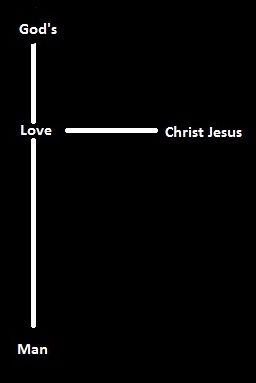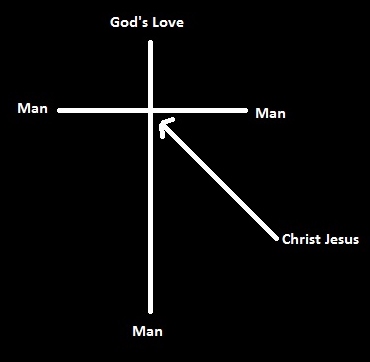
1 John 4:7-16 (ESV) Beloved, let us love one another, for love is from God, and whoever loves has been born of God and knows God. 8 Anyone who does not love does not know God, because God is love. 9 In this the love of God was made manifest among us, that God sent his only Son into the world, so that we might live through him. 10 In this is love, not that we have loved God but that he loved us and sent his Son to be the propitiation for our sins. … 12 No one has ever seen God; if we love one another, God abides in us and his love is perfected in us. … 16 So we have come to know and to believe the love that God has for us. God is love, and whoever abides in love abides in God, and God abides in him.
At this point the question normally arises, “Can non-Christians love also?” The answer is – “yes and no.”
From a secular humanist viewpoint everyone is able to practice and experience love apart from God, but according to the Apostle John this seems to be impossible. Humanism teaches man’s ability to love another is worldly and social in nature because human beings are naturally capable as ethical, moral, and loving beings to do so.
From a Christian viewpoint love is a spiritual act and therefore not natural but supernatural. Note the diagram below.
With this as our foundation for love we can now better understand the three primary words used for love in the koine Greek.
The first is “eros” from which we obtained the word “erotic.” The meaning here is very base in its nature and is always related to sex. Eros is never found in the Bible.
The second word is “philos” and is a love that is closely associated with friendship. The word “Philadelphia,” meaning brotherly love is derived from “philos.” This word is use some 25 times in the New Testament, but probably one of the best pictures of this type of love is found in the Old Testament with the relationship between David and Jonathan. The camaraderie they share reveals a deep sense of loyalty and trust and serves as an example of true friendship.
The third word is “agape” and is usually described as a “Godlike” love. This love is best understood as an active choice of will regardless of feelings. Obviously John 3:16 is the perfect example in which God chose to demonstrate His love through His only begotten Son despite any feelings He may have had in regards to man’s failure. The key here is that God chose in eternity past to love us in spite of our sinful downfall. This level of commitment on God’s part always amazes me.
Now certainly feelings are associated with “agape/love” but it is to be carried out in spite of the positive or negative feelings one may have for another. Man is surely capable of this type of love as revealed in passages such as Ephesians 5:25 – 30. In the Ephesians passage Christ uses Christian marriages as an illustration of His relationship with the Church; Christian husbands therefore are to sacrificially love their wives in the same manner as Christ loves His Bride.
As stated in previous blogs we do not fall in and out of love, but we choose to love another by committing ourselves to a covenant relationship which is only voided by death, (I speak of marriage here). This is the type of love that says, “I’m committed to you today even though I don’t like you very much because of something you’ve said or done. You may have hurt me or made me angry but I still love you, and I’m still committed to you in spite of your actions and the feelings I’m presently experiencing.” This is the type of love that God has for us as Christians.
Think for moment, when we as Christians sin we in essence have committed an act of spiritual adultery and broken our covenant with Christ. Sin is a constant struggle in the believer’s life. While we live in this flesh God’s grace is increasingly present and His love for us will never vanish. Remember God is a covenantal God who hates divorce and would never break the covenant He established with us through the blood of His Son. I find great assurance in the truths conveyed in Romans chapter 8 concerning God’s love for us.
Romans 8:37-39 (ESV) No, in all these things we are more than conquerors through him who loved us. 38 For I am sure that neither death nor life, nor angels nor rulers, nor things present nor things to come, nor powers, 39 nor height nor depth, nor anything else in all creation, will be able to separate us from the love of God in Christ Jesus our Lord.
In closing here are three things to remember:
- Love is a commitment to a relationship involving our whole personality where we attempt to meet the true needs of another human being through the leading and power of the Holy Spirit.
- Intimacy is when two or more people are involved in an interdependent relationship of love based upon a shared perception of spiritual equality. This can be experienced in marriages, friendships, and families.
- The best marriages always begin with a love of friendship! How do I know? I've seen it numerous times in other relationships through the years, and I've experienced it for the last 30 years by being married to my best friend.
Blessings,
Rod


